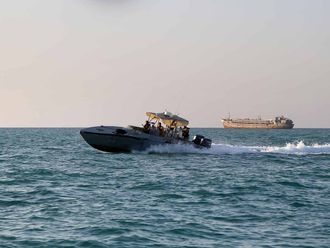The Hague: The International Criminal Court said on Wednesday that it would not yet open a probe into alleged crimes committed by Daesh in Iraq and Syria, including genocide, as it lacks jurisdiction.
Iraq and Syria have not signed the ICC’s founding Rome Statute that would give the court jurisdiction, but the ICC could prosecute some of the thousands of foreign Daesh fighters who are nationals of countries that have signed up.
Crimes of “unspeakable cruelty” including mass executions, sexual slavery, rape, torture and mutilation have been reported and genocide alleged, chief prosecutor Fatou Bin Souda said in a statement.
As a result, her office has been assessing the prospect of exercising “personal jurisdiction” over foreign Daesh fighters, including from Tunisia, Jordan, Britain, France, Germany, Belgium, the Netherlands and Australia, she said.
However, the Daesh is “primarily led by nationals of Iraq and Syria... thus, at this stage, the prospects of my office investigating and prosecuting those most responsible... appear limited.”
“I have come to the conclusion that the jurisdictional basis for opening a preliminary examination into this situation is too narrow at this stage,” Bin Souda said.
The United Nations Security Council could refer the situation in Iraq and Syria to the ICC, as happened with Libya in 2011, Bin Souda said, and countries with nationals who are Daesh militants could also launch their own prosecutions.
The prosecutor said in an interview in November that she was weighing bringing war crimes charges against Daesh fighters, saying she had received files from several countries.
Daesh militants have carried out a wave of abuses in areas they control in Iraq and Syria, including public beheadings, mass executions, enslavement and rape.
The ICC is the world’s only independent permanent tribunal to try cases of genocide, war crimes and crimes against humanity. It was established in 2002 and opened its doors a year later.












